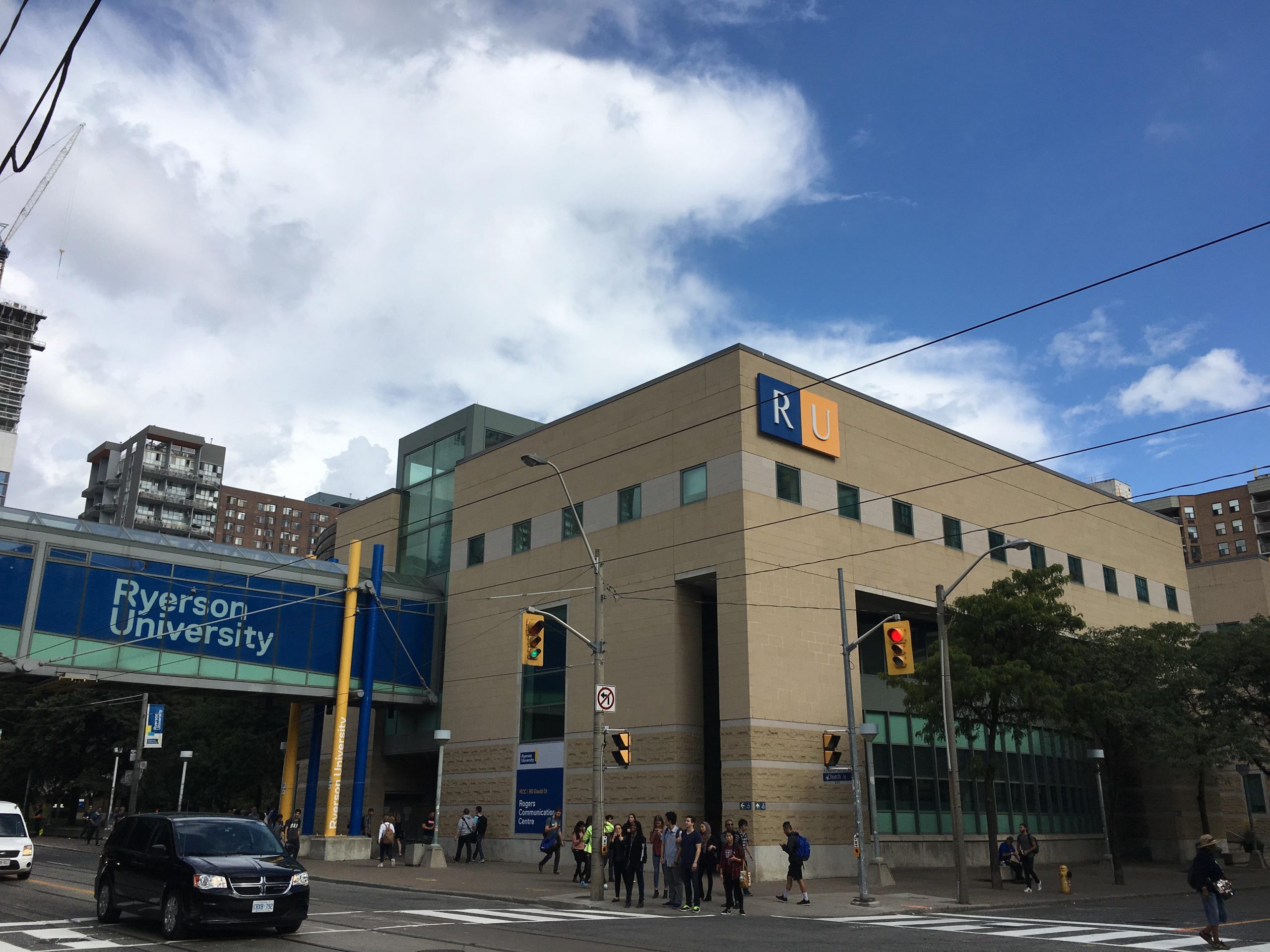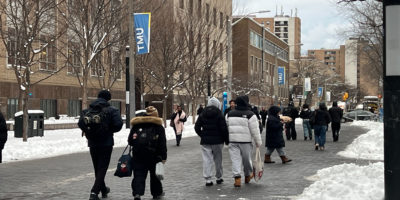By Stefanie Phillips
Billy Qian will not be allowed to attend his community nursing class and accompanying clinical placement, which were cancelled this week after more than 12,000 Ontario public college faculty went on strike.
On Oct. 16, the Ontario Public Service Employee Union (OPSEU) representing professors, instructors, counsellors and librarians at 24 Ontario colleges marched to the picket line to mark the beginning of the strike.
The OPSEU is fighting for more rights for employees, including increased job security for part-time faculty and staff, as well as giving faculty a stronger voice in academic decision-making.
The strike began after negotiations with the College Employer Council failed to reach an agreement. The union represents faculty from George Brown College (GBC) and Centennial College—schools part of the collaborative nursing program in conjunction with Ryerson University.
In the collaborative program, students spend the first two years of their degree at the college where they were accepted and continue their final two years at Ryerson. In those final years, students pay tuition to Ryerson but still have faculty advisors from their original colleges for some classes, including their clinical placement.
Qian, who started his degree at Centennial College, says he is concerned about not meeting the required hours needed at his clinical placement to graduate.
“We need to get a certain amount of clinical hours before the end of the year,” he said. “The longer the strike goes on for, the more clinical hours and everything we’re missing.”
The Ryerson-George Brown-Centennial chapter of the Canadian Nursing Students’ Association (CNSA) released a statement Monday saying that while they support the OPSEU faculty members’ right to strike, they “strongly oppose” the act and encourage immediate negotiations to resume.
Andy Mok, an official delegate of the chapter and fourth-year nursing student, said depending on the duration of the strike the effects could be “detrimental” to the students.
“The nursing degree is a professional degree that prepares students to work as a registered nurse in the clinical setting. The point of clinical placement and in conjunction with their education at the schools is to prepare them to have the skills, the knowledge, the critical thinking and the ability to assess patients,” he said.
The Daphne Cockwell School of Nursing (DCSN) at Ryerson posted to the strike information webpage on Sunday, informing students of the affected courses and classes.
For students in their first or second year at either GBC or Centennial College, all classes have been cancelled except for three (because they are taught by Ryerson professors). Students in their third year will continue classes as normal with the exception of the community nursing class and clinical placement. Fourth-year students get to continue with their classes as scheduled, including their clinical placements. However, they will not have contact with their faculty advisors. Instead, members of the nursing management teams at the college sites have become their primary contact.
The webpage also indicates that all classes for nursing students who started their program at Ryerson will not be affected by the strike. The CNSA will be in “constant” communication with DCSN director Nancy Walton for the duration of the strike to represent over 1,600 nursing students from all three campuses in the collaborative program. Walton said the students are her “priority” right now.
“We will be working very hard to communicate with students and implement contingency plans,” she wrote in an email to The Eye.
Three strikes have occurred in the college sector over the past 50 years, according to The Globe and Mail.
The most recent strike was in March 2006, where college faculty represented by OPSEU were on strike for 20 days.
There have been no updates about the OPSEU and College Employer Council reconvening at the bargaining table by the time of publication.












Leave a Reply